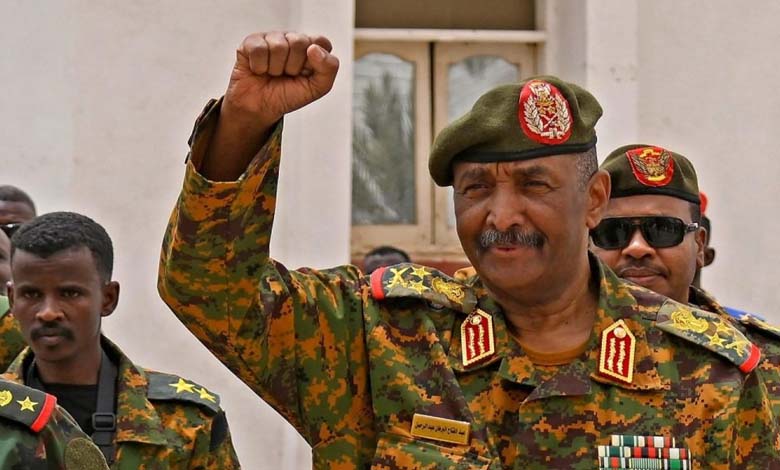The Brotherhood Pressures Al-Burhan to Pass the “Popular Resistance” Law: Details

As the war accelerates, the “Brotherhood” within the Sudanese army is pushing for the enactment of a special law on the “Popular Resistance,” amid warnings of creating new militias with political agendas that would hinder stopping the war and achieving peace. Over the past two days, the state of Khartoum announced the issuance of an internal regulation for the “Popular Resistance” as a body affiliated with the General Command of the Sudanese army.
The regulation stipulates the “planning and execution of general mobilization and alert in coordination with the state security committee, organizing and arranging popular resistance, arming the mobilized under the supervision of the state military command, and recording and classifying the mobilized, assigning them to military units or cities, and utilizing the capabilities and skills of the mobilized to serve the nation in peace and war.”
The “Popular Resistance” is a militia that supports the Sudanese army in its war against the Rapid Support Forces, backed by supporters of the former National Congress Party, as evidenced by several indicators, including the appearance of party leaders touring Popular Resistance camps in several states under the control of the Sudanese army.
The supporters of the former National Congress Party plan to make the Popular Resistance a new entity through which they will appear on the upcoming political scene. The Ministry of Foreign Affairs under Al-Burhan‘s authority stipulated two days ago the participation of the “Popular Resistance” in the meeting called by the Egyptian government for Sudanese political forces at the end of this June.
Arwa Al-Sadiq, a leader in the National Umma Party, said: “The mentality currently governing the country is the same as that of the previous regime and its legal and legislative facades. They seek to repeat the same mistakes to legitimize new militias that obey warlords and their coordinators, making the initiative appear acceptable to regional and international observers and trying to give it some legitimacy.”
-
From Iraq and Lebanon to Yemen and then Sudan, Iran is pressuring al-Burhan to establish a naval base on the Red Sea coast.
-
Is Sudan now threatened with international and regional isolation? What is the role of President al-Burhan?
He said that “the institutions authorized to draft and issue these legislations, including the Ministry of Justice advisers and constitutional jurists in various legislative circles, are all outside their institutions. Their administrations have been absent since the first day of the war, and some have been removed since the coup.”
He explained that “those who work in the state apparatus today are the privileged and empowered elements of the Brotherhood. Moreover, the destruction of the constitutional reference (the Constitutional Document) in October 2021 makes this legislation without institutional support or constitutional reference, rather tailored to the war authority and conflict atmosphere, meeting the desires of the generals.”
-
Refusal of al-Burhan to mediations and his unwillingness to stop the war: a clear stance raising questions
-
Sudan: Is al-Burhan Aligning with ‘Kizan’?
Regarding fears of the “Popular Resistance” dragging the country into civil war, Arwa Al-Sadiq said that “the legalization of the status of extremist groups outside the law, in addition to being a dangerous operation, is a sensitive and complex process due to the ensuing security and political challenges. These groups and the non-regular militias they produce have started operating outside the law from their inception, causing atrocities and crimes that no one dared to mention or hold anyone accountable for, even among the army leadership.”












